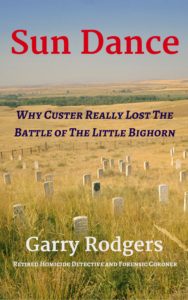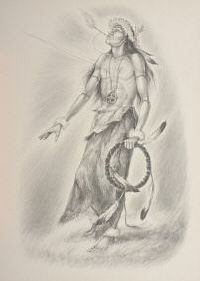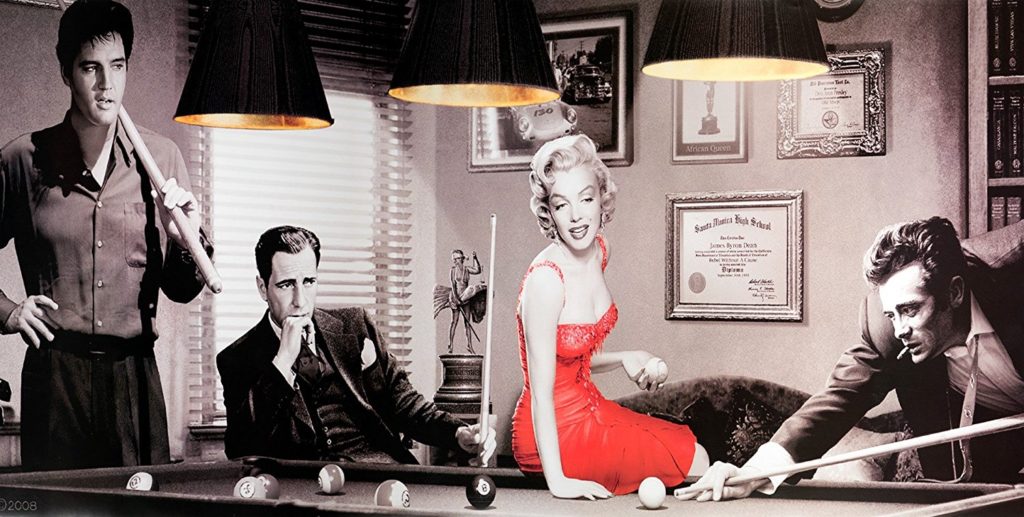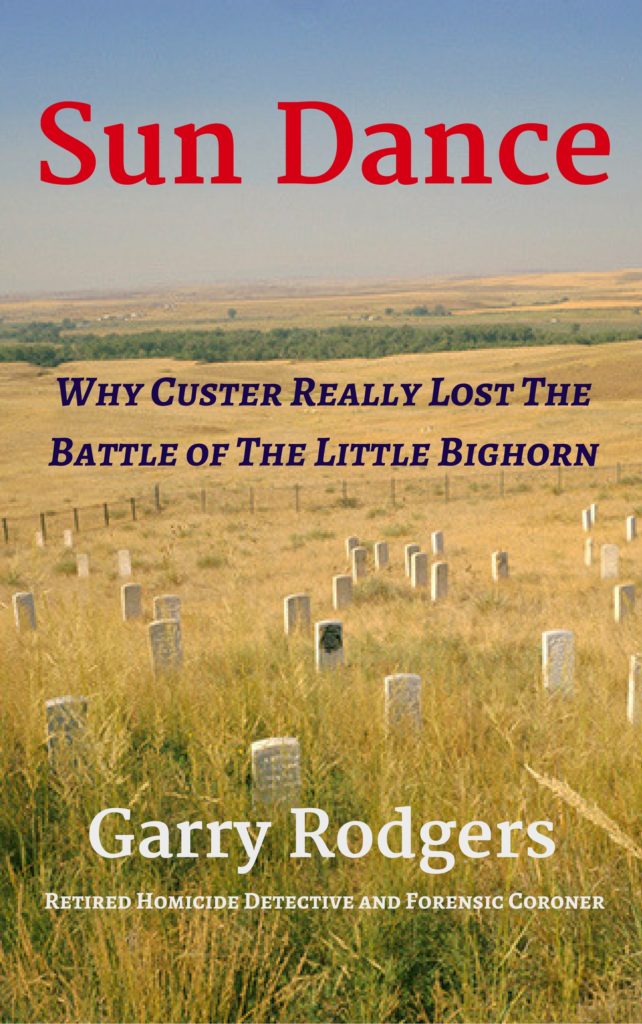 Ordinary people have a sun dance fascination with famous folks. They worship bright lights but rarely waltz with military heroes and historical figures. Same with movie stars like Sundance’s Robert Redford. Sports jocks are honored. Some politicians are revered. So are daredevils. Religious and spiritual leaders. Business successes. Inventors. Philanthropists. Chauvenistic cooks and reality TV show hosts. Even the odd crime writer has their day of fame and following. Some people are famous for being famous like the Kardashian Klan but most in the spotlight have earned it. Some are good folks. And some are disastrous. Like those in the fatal sun dance between Sitting Bull and Custer with his men of the United States 7th Cavalry.
Ordinary people have a sun dance fascination with famous folks. They worship bright lights but rarely waltz with military heroes and historical figures. Same with movie stars like Sundance’s Robert Redford. Sports jocks are honored. Some politicians are revered. So are daredevils. Religious and spiritual leaders. Business successes. Inventors. Philanthropists. Chauvenistic cooks and reality TV show hosts. Even the odd crime writer has their day of fame and following. Some people are famous for being famous like the Kardashian Klan but most in the spotlight have earned it. Some are good folks. And some are disastrous. Like those in the fatal sun dance between Sitting Bull and Custer with his men of the United States 7th Cavalry.
It’s not surprising when celebrities check-out and say goodbyes that the unwashed masses take notice. Some last words from dying demigods are inspirations from the departed. Some deathbed utters are foundations for lasting legacies. And some dying words are just plain stupid or hilariously funny.
In no particular order of importance — except for the last one — read to the end — here are a few fatal words from famous people checking-out.
Diana, Princess of Wales – “My God. What’s happened?”
John Lennon – “I’m shot.”
Bob Marley – “Money can’t buy life.”
Curt Cobain – “It’s better to burn out than to fade away.”
Terry Katch (Rock musician) – “Don’t worry, it’s not loaded.”
Humphrey Bogart – “All you owe the public is a good performance.”
Joe DiMaggio – “I’m finally going to see Marilyn again.”
Elvis Presley – “Just a minute. I have to go to the bathroom.”
Leonard Nimoy (Spock’s last Tweet) – “A life is like a garden. Perfect moments can be had, but not preserved, except in memory. LLAP.”
Bing Crosby – “That was a great game of golf, fellers.”
Oscar Wilde – “Either that wallpaper goes or I do.”
Hunter S. Thompson – “Relax – This won’t hurt.”
Adolph Hitler – “I myself and my wife – in order to escape the disgrace of deposition or capitulation – choose death. It is our wish to be burnt immediately on the spot where I have carried out the greatest part of my daily work in the course of a twelve years’ service to my people.”
Robert Alton Harris (California Gas Chamber, 1922) – “You can be a king or a street sweeper, but everyone dances with the Grim Reaper.”
William Somerset Maugham – “Dying is a very dull and dreary affair. My advice to you is to have nothing whatever to do with it.”
Surgeon Joseph Henry Green – “Stopped.” (Checking his own pulse as he lay dying.
Salvador Dali – “I do not believe in my death.”
Queen Elizabeth I – “All my possessions for a moment of time.”
Errol Flynn – “I’ve had a hell of a lot of fun and I’ve enjoyed every minute of it.”
John Quincy Adams – “This, is the last of earth. I am content.”
Buddha – “Work hard to gain your own salvation.”
George Bernard Shaw – “Sister, you’re trying to keep me alive as an old curiosity, but I’m done, I’m finished, I’m going to die.”
Erskine Childers (Irish Nationalist facing firing squad) – “Take a step forward, lads. It will be easier that way.”
Che Guevara – “I know you have come to kill me. Shoot, Coward. You are only going to kill a man.”
Julius Caesar – “Et tu, Brute?”
Leonardo Da Vinci – “I have offended God and mankind because my work did not reach the quality it should have.”
Thomas Edison – “It is very beautiful over there.”
Karl Marx – “Last words are for fools who haven’t said enough.”
Sir Winston Churchill – “I’m bored with it all.”
Luciana Pavarotti – “I believe that a life lived for music is an existence spent wonderfully, and this is what I have dedicated my life to.”
Crazy Horse – “Hokahey! Today is a good day to die.”
James W. Rodgers – “Bring me a bullet-proof vest.” (Asked for a last request when facing a Utah firing squad in Utah.
Dylan Thomas (Welsh poet) – “I’ve had 18 straight whiskies. I think that’s the record!”
Alfred Hitchcock – “One never knows the ending. One has to die to know exactly what happens after death, although Catholics have their hopes.”
Charles Darwin – “I am not the least afraid to die.”
Thomas J. Grasso – “I did not get my Spaghetti-O’s. I got spaghetti. I want the press to know this.” (Convicted murderer using his last words to complain about his last meal.)
Amelia Earhart – “Please know that I am quite aware of the hazards. Women must try to do things as men have tried. When they fail, their failure must be but a challenge to others.” (Last radio communiqué before her disappearance.)
George Washington – “It is well, I die hard, but I am not afraid to go.”
Prophet Mohammed – “Oh Allah. Pardon my sins. Yes, I come.”
Jesus Christ – “It is finished. Father, into your hands I commend my spirit.”
Francis ‘Two-Gun’ Crowley (Texas Electric Chair, 1931) – “You sons of bitches. Give my love to mother.”
George Armstrong Custer (Lieutenant Colonel – Brevet General, U.S. 7th Cavalry) – “There aren’t enough Indians in the world to defeat the 7th Cavalry.”
General John Sedgwick – “They couldn’t hit an elephant at this distance.”
Crowfoot (American Blackfoot Indian Orator) – “What is life? It is the flash of a firefly in the night. It is the breath of a buffalo in the winter. It is the little shadow which runs across the grass and loses itself in the sunset.”
General Philip Sheridan – “The only good Indian is a dead Indian.”
General Alfred Terry – “Now Custer, Don’t get greedy.”
Custer – “Holy cow! Look… at all… the fuckin’… Indians.
 There’s an untold story about Custer and his death at the last stand. It’s about the American Indian Sun Dance and how the immense psychological impact on native warriors was the root cause of Why Custer Really Lost The Battle of the Little Bighorn.
There’s an untold story about Custer and his death at the last stand. It’s about the American Indian Sun Dance and how the immense psychological impact on native warriors was the root cause of Why Custer Really Lost The Battle of the Little Bighorn.
What started as a blog post about forensic evidence found at archaeological excavations on the Little Bighorn Battlefield National Monument in southern Montana turned into a book. For years, I’ve researched a subject that fascinates me. Why did a small, old-west American skirmish become a huge historical happening?
The answer is because the white society of the time simply couldn’t comprehend how a crack cavalry unit led by a fearless, military genius like “Boy-General” Custer being wiped out by a bunch of primitive savages. Well, Custer was no genius and the Sioux and Cheyenne were not primitive. Nor were they savages. That’s a myth. It’s bullshit. It’s part of 140 misleading years of Custermania.
While reading accounts of the Little Bighorn Battle, I came across a quote. “Custer’s troops instantly changed from offense to defense and were immediately overrun by an overwhelmingly aggressive force”. I stopped and said, “What instantly and immediately changed?”
 The fight changed because of a complex and universal mindset the Sioux and Cheyenne soldiers had. Their Cavalry opponents had no concept of it. That’s the mental clarity and collective consciousness a determined human force has when psychologically prepared and dedicated to a greater purpose. Sitting Bull’s leadership through Sun Dance ceremonies properly prepped his men. They broke their opponent’s will to fight and supercharged their own. That’s Why Custer Really Lost the Battle of the Little Bighorn.
The fight changed because of a complex and universal mindset the Sioux and Cheyenne soldiers had. Their Cavalry opponents had no concept of it. That’s the mental clarity and collective consciousness a determined human force has when psychologically prepared and dedicated to a greater purpose. Sitting Bull’s leadership through Sun Dance ceremonies properly prepped his men. They broke their opponent’s will to fight and supercharged their own. That’s Why Custer Really Lost the Battle of the Little Bighorn.
In the late 1800’s, U.S. Government policy of genocide on indigenous citizens was a crime against humanity. Custer’s defeat solidified a Euro-American mentality that demanded revenge on native people. The Little Bighorn was a pivot point. It led to century-long injustice from white on red that’s slowly being repaired. Sun Dance – Why Custer Really Lost the Battle of the Little Bighorn is a small step towards helping people understand the insightful and emotionally powerful impact the Sun Dance had on Custer’s foe. The Sun Dance caused Custer’s annihilation. It’s an incredibly powerful force and a universal lesson we need to learn.
If anyone would like an Advanced Reading Copy (ARC) of Sun Dance — Why Custer Really Lost the Battle of the Little Bighorn — I’d be happy to give you one when it’s ready. Just email me at garry.rodgers@shaw.ca.











My uncle was invited to a Blackfoot Sundance, two years ago. He was a month before death, and tho he did not tell his hosts he was dying, one evening they sensed something & gathered blankets to wrap around him.
What fascinating work to research, Garry.
I have been smacked between the eyes struck with the lovely humor & taunting in danger of the Nez Perce 1877.
I would love a copy & to PayPal compensation!
Hi Clara, The more I look into the power of the sun dance, the more I’m convinced of the tremendous spiritual power it holds. It’s not something that white westerners can appreciate unless they experience it for themselves. Unfortunately, it seems many sun dances are restricted to natives only. I was fortunate to be part of three Carrier Indian sweat lodges. They were amazing experiences. Thanks for commenting and I’ll send you a copy of Sun Dance once it’s done!
I’m so sorry I’m late!!!! My favorite final words from this list are, “Don’t worry. It’s not loaded.”
Wow, Garry. Sun Dance sounds fascinating. I’d love to read an ARC. Sign me up!
Better late than never, Sue. Hmmm… those were probably someone’s last words 🙂 Copy of Sun Dance comin atcha when it’s ready:)
I would like to read your take on that historic event. Please include me in your posting of the ARC.
You’re on the list, Dave. Thanks for connecting!
https://www.pinterest.com/pin/352054895844141922/
As always, a wonderful piece
Hey, thanks Joe!
Hey Garry, this is all so intriguing! Knowing how much I love all your books & your unique writing skills, I would love a copy! Please & Thank You!
You betcha, Gwen 🙂
HI, Garry.
Fascinating, and I am so pleased other that you’ve written a book about this critical battle, which in effect shifted the tide against the Sioux and Cheyenne tribes at that time. One question. I understand that “Today is a good day to die,” was a war cry of the Sioux and may very well have been associated with Chief Crazy Horse. To the best of my recall, however, it was Chief Low Dog in an interview some years later who stated that he rallied his men into the fray by calling the full cry; “Today is a good day to die. Follow me.” Do you have any more information on this cry? I want to use it as a black ops warrior’s motto in a screenplay, and would like to use the most appropriate attribution.
And, you bet, I would love an advance copy of SUN DANCE to read and review.
PS – If I may add this, thank you for the moving post you wrote on Christ’s crucifixion. I was overwhelmed by the facts and the passion.
Hi Judy! Thanks for your nice comments 🙂 I did a little researching into the origin/meaning of “Hokahey” (Hoka Hei, Hokehheh). It seems this was a common term for the Sioux and Cheyenne much like our English phrases “Let’s go” and “Let’s roll”. I see there’s a modern version used by the US Army, “Opahey” that originated from the Cherokee culture. I don’t know about Low Dog but the battle call probably was used by a lot of the Native American combatants. I found this quote on a site called Indigenous Reddit and I think it puts the phrase into perspective.
“Then another great cry went of from the dust: “Crazy Horse is coming. Crazy Horse is coming!” Off toward the west and north they were yelling “Hoka hey!” like a big wind roaring, and making the tremolo; and you could hear the eagle bone whistles screaming.”
It also puts something else about the battle into perspective. I can’t quite comprehend the massive action that was going on. The screams of charging warriors, the cries of terrified soldiers, the panicked horses, the noise of the gunfire, the smell of blackpowder gunsmoke, the dust, the heat and the overwhelming confusion. I don’t think the surreality of this battle has ever been accurately captured on film.
Indians in Custer’s day, as well as MANY people today, believe they are going to a better place when they die, or that they will be great warriors in the hereafter, or like Japan’s kamikaze pilots, that they would be rewarded in their “next life.” There has NEVER been any scientific proof of a life after death, except in the minds of humans. But it makes humans feel better to believe it in their last hours.
You never fail to intrigue me Gary. What an interesting topic and now we are here, in 2017 and still the white man is arrogant towards that which is different to him.
I never cease to be amazed that people read my stuff 😉 You’re so right about white arrogance, Diana. Hopefully, Sun Dance presents just how sophisticated the Sioux and Cheyenne people were in their understanding about how humans should harmonize with nature – and also how universal connection with consciousness allows great achievements like mounting a mass counter-offensive with absolutely no prior planning.
I would be delighted to read it.
Thanks, Gary.
Coming your way as soon as it’s done, Val!
Interesting “last words” comments. Your upcoming book on Custer’s defeat sounds intriguing. I’ve long been a “student” of the battle. Thanks for posting!
–Michael
Hi Michael – Like you, I’m also a student of the BLBH. I always assumed the main reason for Custer’s defeat was a combination of his reckless tactics and being outnumbered. Once I really looked into this thing and did a root cause analysis, it hit me like a ton of bricks that the real reason was the phenomenal mindset of the Sioux and Cheyenne warriors. Custer and the other army soldiers had no idea how powerful the Native American will was in defending themselves. I’ll be sure to send you an ARC once it’s ready. Thanks for commenting!